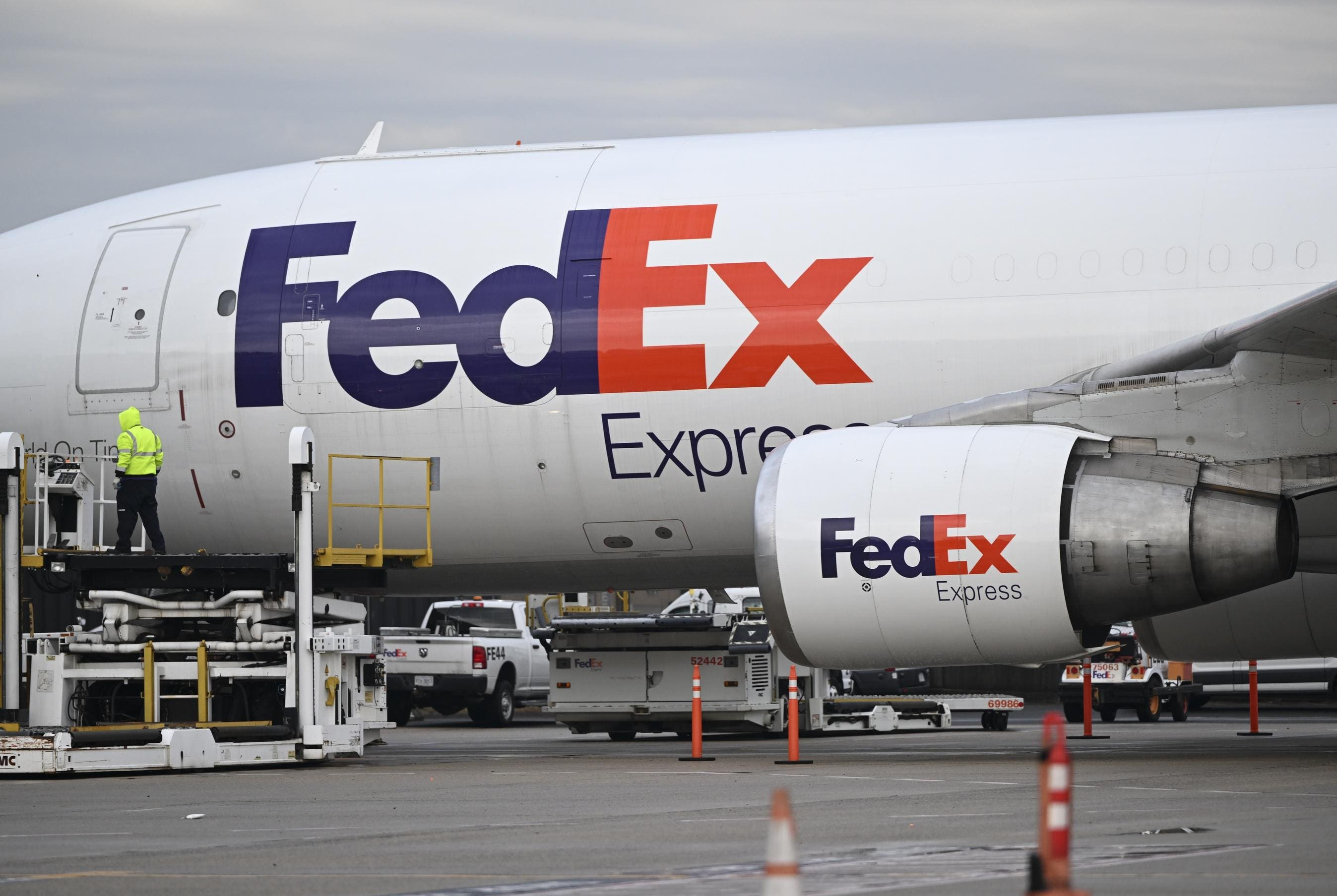FedEx Stock Plunges 15% After Earnings Miss: Is This a Sign of a Weaker Economy?
FedEx (FDX) shares took a steep dive on Friday, plummeting nearly 15% after the company reported a much-worse-than-anticipated quarterly earnings report. The news sent shockwaves through the market, highlighting growing investor concerns over potential cracks in the US economy.
The package delivery giant, often viewed as a bellwether for the economy, reported profits of $892 million for its fiscal first quarter ended Aug. 31, falling short of analysts' expectations by a significant 24%. The company also slashed its financial outlook for the fiscal year ahead, projecting earnings per share between $20 and $21, down from its prior range of $20 to $22. This news came just a day after the Federal Reserve announced a historically large interest rate reduction, suggesting a positive outlook for the US economy. FedEx's outlook, however, paints a contrasting picture.
FedEx's Poor Performance: A Sign of Shifting Consumer Behavior
FedEx executives pointed to several factors driving the company's weak performance, including inflation-squeezed customers opting for cheaper shipping options. This shift in consumer behavior has led to a decline in demand for FedEx's priority shipping services. The company also cited a “weaker industrial economy” for the declining demand for its B2B services, or shipments between businesses and manufacturers.
Aggressive Cost-Cutting Measures
FedEx CEO Raj Subramaniam announced the company's plans to continue aggressive cost-cutting measures, aiming to save the company $4 billion in the next fiscal year. While some analysts like Daniel Imbro of Stephens remain optimistic about FedEx's future, citing a “pretty attractive risk-reward” from current levels, others, like Oppenheimer analysts, are taking a wait-and-see approach, emphasizing the need for demonstrated progress in a challenging operating environment.
Is the Industrial Economy the Real Culprit?
FedEx's concerns focused primarily on industrial customers who ship goods to other businesses, not on consumers, who represent the vast majority of US economic activity. Subramaniam even noted a resurgence in e-commerce shipments. However, the company's emphasis on the “soft industrial economy” is a source of worry for investors, sending FedEx (FDX) shares down 14% on Friday.
FedEx's Future: A Cautiously Optimistic Outlook
While FedEx acknowledged a “challenging” quarter, it remains cautiously optimistic about a moderate improvement in industrial production in early 2025. However, the company is forecasting low growth expectations given the current economic environment.
The Impact of the Fed Rate Cuts
The Federal Reserve’s larger-than-expected interest rate cut, aimed at stimulating economic activity, has added another layer of complexity to the situation. Subramaniam acknowledged the rate cuts as a signal of a weak economic environment. However, Federal Reserve Chair Jerome Powell emphasized the strength of the US economy, highlighting the solid labor market and the ongoing decline in inflation.
The Big Picture: Navigating Uncertain Waters
FedEx's disappointing results and the ongoing economic uncertainty have raised questions about the health of the US economy. While the Federal Reserve is actively working to stimulate growth, the company's concerns about a weakening industrial economy and consumer behavior shifts highlight the challenges businesses are facing in navigating these turbulent economic waters. As FedEx continues to implement cost-cutting measures and adjust to the evolving economic landscape, investors will be closely watching to see how the company navigates these challenges and whether its optimistic outlook for the future materializes.
The Bottom Line: A Wake-Up Call for the Market?
The market's reaction to FedEx's earnings report underscores the importance of closely monitoring indicators like these. While the Federal Reserve might be focused on keeping the labor market strong, the company's experience with weakening demand for its priority shipping services and the concerns about the industrial economy suggest a broader shift in consumer behavior that may be impacting the wider economy. As the market continues to grapple with these factors, investors will be keenly watching to see if FedEx's experience serves as a wake-up call for the broader economy or if it represents a temporary blip in an otherwise robust economic environment.

















